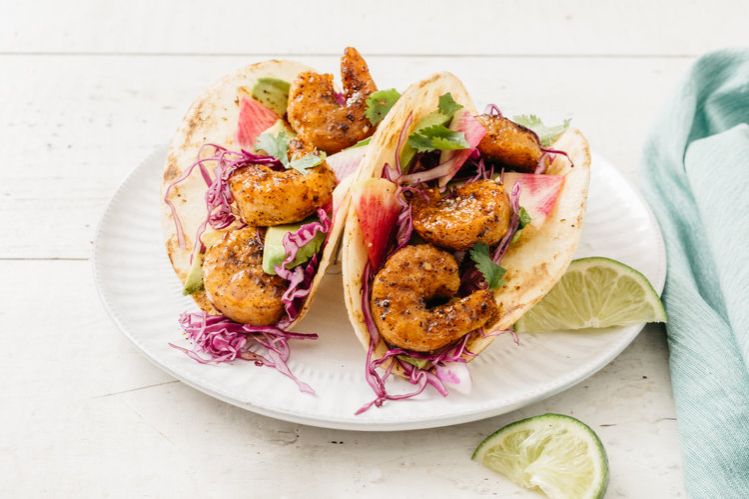Plant-based seafood maker New Wave Foods has ceased operations and entered into an assignment for the benefit of the creditors (ABC), an alternative to formal bankruptcy proceedings that transfers a distressed company’s assets from the debtor to a trust for liquidating and distributing its assets.
The general assignment document, first shared by trade publication Alt Meat, explains that San Francisco-based New Wave closed its doors in November.
According to the document, New Wave Foods—which raised an $18 million series A round in January 2021—is “indebted to various creditors and is unable to pay its debts in full. It has decided to discontinue its business and believes that transferring its property to an assignee for the benefit of creditors is in the best interest of its creditors and stockholders.”
The document does not contain a list of assets at New Wave, which worked with co-packers to produce plant-based shrimp for the foodservice industry. However, an accompanying notice of assignment says creditors have up until May 13 to file claims against the company, which announced a distribution agreement with Dot Foods in early 2021 to launch its plant-based shrimp in North American foodservice outlets.
Cofounder and CEO Michelle Wolf told AgFunderNews: “Although we were gaining momentum in 2023 and had secured a major customer for 2024 sales, we couldn’t outrun industry headwinds.
“Our focus had been on healthy business fundamentals since I became CEO in late 2021 and I’m proud of what we achieved. I believe New Wave has been one of the stepping stones toward more sustainable eating, whether by delighting diners, inspiring competitors, or advancing plant-based innovation. I continue to have faith in the industry’s long-term success but the environment we’re in will continue to push companies to prioritize like we did and explore innovation horizons.”
Founded in 2015 by Michelle Wolf and Dominique Barnes, New Wave Foods was backed by investors including Tyson Ventures (which first invested in 2019), New Enterprise Associates, and Evolution VC Partners.
While its original plant-based shrimp formulation combined brown algae with soy protein, later iterations replaced soy protein with mung bean protein.

The market for plant-based seafood
A laundry list of problems linked to the seafood industry—from overfishing to mercury, microplastics, fraud, mislabeling, illegal labor practices, and bycatch—has driven interest in alternatives.
The alt seafood market has yet to take off in the US, however, with data from the Good Food Institute showing it accounted for just $14 million in US retail sales in measured channels in 2022.
That said, new players continue to emerge. The most notable recent US market entrant is British Columbia-based Konscious Foods, a startup created by Yves Potvin, who built Yves Veggie Cuisine (sold to Hain Celestial in 2001) and Gardein (sold to Pinnacle Foods, now part of Conagra Brands, in 2014) before attempting to strike CPG gold for a third time with Konscious Foods, a frozen food brand with a distinct culinary vibe.
Speaking to AgFunderNews last summer after raising $26m in seed funding, Potvin said: “The reason we’ve launched so fast is that Konscious Foods is all about healthy convenience foods with flavors and textures that appeal to a younger generation. It’s not about plant-based seafood [per se], it’s about innovation. The other important thing is that its does not cost any more than its [conventional seafood-based] counterparts.”
He added: “One of the biggest challenges in plant-based is that the products are often 20-50% more expensive, so not only do consumers have to sacrifice on taste and the texture, they have to spend more money. We are the first in the marketplace at the same price [as conventional seafood products]. So we’re ticking all the right boxes.”

‘It’s a grim time for alternative protein investment’
Speaking to AgFunderNews after launching Future Ocean Foods, a new trade association for alt-seafood startups in November, founder and executive director Marissa Bronfman said: “It’s a grim time for alternative protein investment… but if you’re looking at a global opportunity as an investor and you have a fairly long time horizon, I would say look to seafood. A majority of the world is eating seafood, so if you’re looking for a massive total addressable market, seafood is a fantastic way to go.”
While cynics would argue that just because seafood is a massive market doesn’t mean that alt seafood players will capture a meaningful share of it, large seafood players recognize that they can’t carry on as they are forever, claimed Bronfman.
“As we prepare for a future population of 10 billion people by 2050, the need for creating and scaling sustainable protein sources has never been more urgent.”





